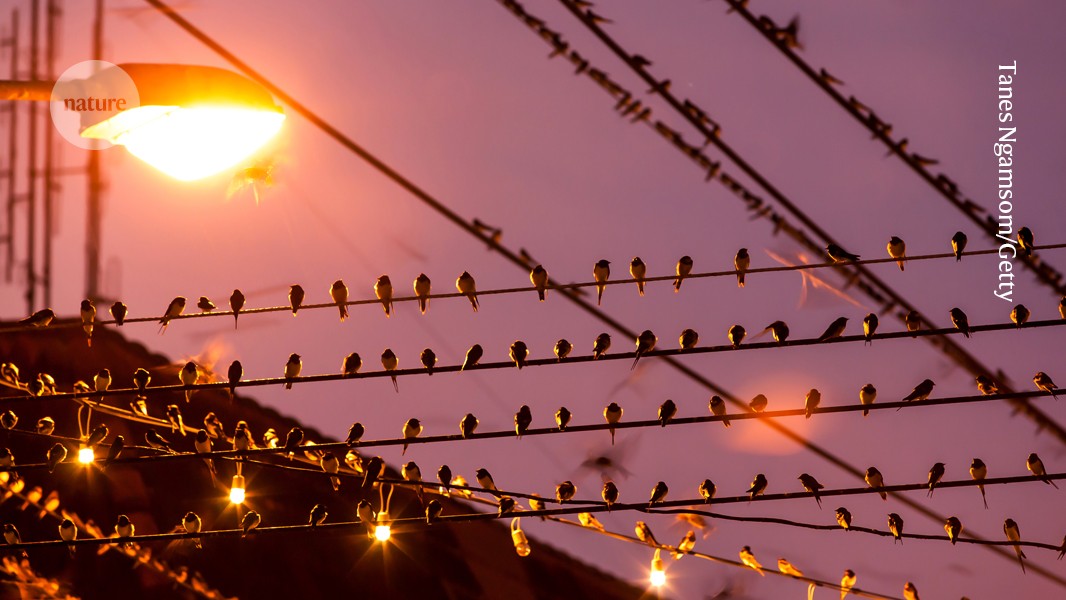
"Big-eyed species are especially vulnerable to the effects of light pollution, a citizen-science effort shows. Birds in brightly lit cities sing for an average of 50 minutes longer than those in the darkest environments, starting their vocalizations an average of 18 minutes earlier in the morning and finishing 32 minutes later in the evening, data from a global citizen-science effort show."
"Big-eyed species are especially vulnerable to the effects of light pollution, a citizen-science effort shows. Birds in brightly lit cities sing for an average of 50 minutes longer than those in the darkest environments, starting their vocalizations an average of 18 minutes earlier in the morning and finishing 32 minutes later in the evening, data from a global citizen-science effort show. Access options Additional access options: doi: https://doi.org/10.1038/d41586-025-02726-0 Subjects"
Big-eyed species are especially vulnerable to the effects of light pollution. Birds in brightly lit cities sing for an average of 50 minutes longer than those in the darkest environments. They start their vocalizations an average of 18 minutes earlier in the morning and finish 32 minutes later in the evening. These temporal shifts in singing occur across urban light gradients. Observations derive from a global citizen-science effort that recorded vocal behavior across varied lighting conditions. The combined earlier starts and later finishes account for the increased daily song duration. The findings indicate pronounced behavioral changes in urban-dwelling birds linked to artificial nighttime lighting.
Read at Nature
Unable to calculate read time
Collection
[
|
...
]